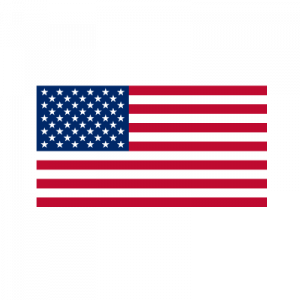The Yale LLM: Getting here or The CASTLE
By Yale Blogger 2015 in LLM GUIDE Student Blog: Yale LLM 2015-2016 on Oct 04, 2015
However much I tried to avoid it, now is the time to address the other sense of ‘getting here’. For I still owe you some thoughts about the admission process at Yale. With the application deadlines slowly but inexorably approaching this might be an adequate moment for this least appealing of topics. Hopefully some of my semi-educated guesses will be of some help. In order not to incur any liability I should start with the usual disclaimer: I don’t actually know a thing about the admissions process and its criteria. All I can share with you are some of my classmates’ and my own impressions as well as some rather vague pieces of information gathered from the office of graduate admissions. None of my evidence would pass scrutiny under the hearsay rule. It probably makes sense to set out with what you’re up against. I will therefore begin with your odds: From what I was told, my class of 23 LLM-candidates was picked from a pool of around 400 applications. Accounting for applicants who chose not to accept the admission offer I guess Yale Law School admits around 25-27 people per year. This admission quota roughly mirrors the quota for JD admissions (this year 200 out of around 2800). These somewhat discouraging odds notwithstanding there are certain patterns discernible in the admission decisions: Traditionally there seem to be a couple of preferred spots for students from India, China, Israel, Germany, Brazil and Argentina. The exact composition of the LLM-class, of course, differs each year, but these nationalities seem to enjoy good standing among the (varying) faculty members who make the final determinations. Another factor that might affect your odds seems to be the subject-area of your studies. Roughly speaking, you will fare better with a research interest in public (international) law or legal theory than if you were a hardcore private or corporate law aficionada/o. Back to the admission process: Decisions seem to be made in a two step procedure: Of the formally admissible applications around 60-80 are preselected by the admissions office (all of whose personnel have a law degree from a top tier law school and considerable experience in legal education). The final determinations are then made by a board of admissions comprised of three faculty members (differing each year). Extrapolating from my hearsay knowledge of the JD admissions, that seem to be governed by a similar procedure, each of the three faculty members will rate each candidate on a scale ranging between 2 and 4 points. The emerging ranking will then (mostly) determine admissions decisions. So much for formal procedures. But what does this really tell you about how to go about when preparing your applications? Not much, I think. It nevertheless helps to know that the arbitrariness inherent in any kind of admission process is somewhat harnessed by an elaborate procedure involving several steps and some second-guessing by more than one person. Even if procedures turned out to be completely inadequate and random the fact of going through them creates – at least in my opinion – a certain legitimacy of the final decision. Given the unfavorable odds this legitimacy is very much needed: After all, most of you won’t get lucky and get in. But don’t be afraid, whatever you do, there is no means of controlling the outcome of the admissions machinery. Most of the time you will feel like K in Kafka’s “The Castle”. And this is a good thing, since – not being in control - you can’t do anything wrong. (You would think that this kafkaesque prospect should help people to chill and make peace with whatever the outcome may be. Unfortunately, Max Weber’s “The Protestant Ethic and the Spirit of Capitalism” suggests otherwise. Instead of chilling and having a blast in the light of predestination (Why care if what you do doesn’t matter anyways?) Calvinists would spend their time ascetically and neurotically reassuring themselves of their chosen-ness.) Taking this insight into account I guess the prospect of being up against The CASTLE isn’t as encouraging after all. (This is how Yale might look to you right now. A rather dark blend of ivory tower.) (But don't let yourselves be discouraged: Inside it is very bright and cozy and certainly worth the hassle of getting there.) So why don’t I give you some minor pieces of advice in order to facilitate your application journey.- Get some meaningful letters of recommendation!
- Create a convincing narrative!
- Start early!
- Don’t go to the Oktoberfest on the day before your TOEFL!
- Calm down!
LLM News
LLM Articles
How LL.M. Grads Keep Their Cool (and Their Grades)
Nov 22, 2024
A graduate degree can be stressful but with some planning, it can be manageable. From creating a schedule to making sure you have time to unwind, finding a balance with your personal life is within reach.
Why Tech Law is the Hot New LL.M. Focus in an AI Era
Nov 14, 2024
Schools are helping lawyers prepare for a fast-changing legal world impacted by AI and developing technology. Students can benefit from a cutting-edge curriculum and new job opportunities.
Connect with Top California Law Schools
Nov 07, 2024
The California Law LL.M. Consortium is giving prospective students in Milan and London the opportunity to meet school and admissions representatives. They will hear about top legal issues and learn about how a U.S. LL.M. can benefit their careers.
Leaping Back into Firm Life After an LL.M.
Nov 05, 2024
Leaving school behind can feel daunting but if a graduate understands the different expectations and is conscious of new technology, it can make returning to a firm that much easier.













